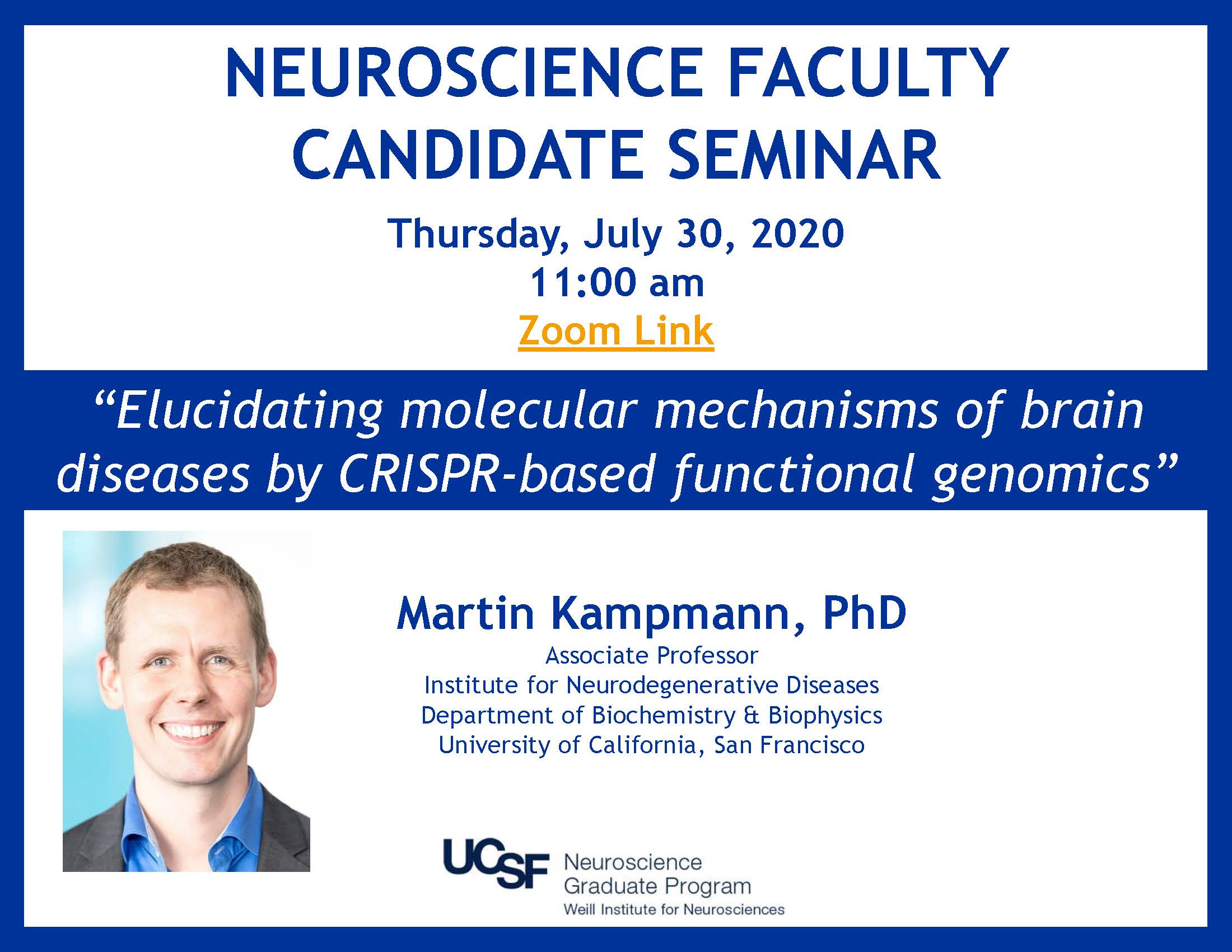Zoom Link

Abstract:
Human genes associated with brain-related diseases are being discovered at an accelerating pace. A major challenge is the identification of the mechanisms through which these genes act, and of potential therapeutic strategies. To elucidate such mechanisms in human cells, we established a CRISPR-based platform for genetic screening in human iPSC-derived neurons, astrocytes, microglia and 3D neuron-glia assembloids. Complex libraries of sgRNAs enable us to conduct genome-wide or focused loss-of-function and gain-of-function screens. Such screens uncover molecular players for phenotypes based on survival, stress resistance, cellular functions and dysfunction, and cell states captured by single-cell RNA-Seq. To uncover disease mechanisms and therapeutic targets, we are conducting genetic modifier screens for disease-relevant cellular phenotypes in patient-derived neurons and glia with familial mutations and isogenic controls. While CRISPR screens provide an unbiased discovery platform, we follow up hypotheses from the screens with cell biology and biochemistry to establish molecular mechanisms. I will present results related to protein aggregation, spreading and toxicity, as well as disease-associated states of glia.
